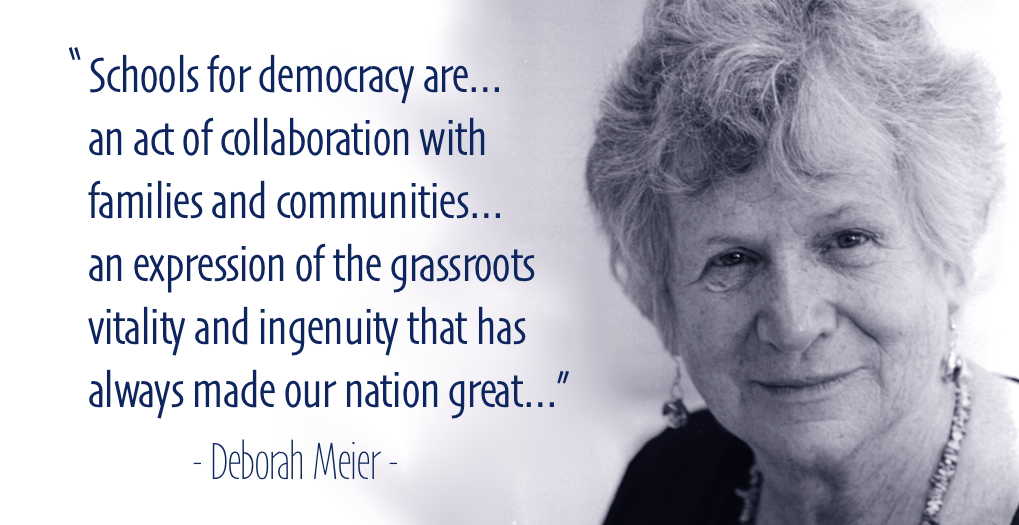What Will It Take to Build a Democratic Movement?

Deborah Meier continues her conversation with Harry Boyte. To read their full exchange, please visit here.
Dear Harry and friends,
Yes, yes, yes, Harry. You ask: What's it all about—given the number of years that the young must spend in school and the money taxpayers are required to pay for schooling, you'd think we might ask that.
Nearly 50 years ago I asked my kindergarteners the same question. Their answers?
"To learn to put your hand up, to sit quietly, to walk in line," etc. And then? "To move on to the next grade." "But," I pressed, "what's the purpose of moving on?" They finally mentioned learning to read. "And why learn to read?" "So you won't be left back." We got all the way up to graduating from high school so you can get a job. "And then why is it so important to learn to read?" "So when you have kids you can help them learn to read" was the happily agreed upon end of it all.
We now are telling them over and over: If you do right in school—work hard and be nice—every last one of you will individually succeed. Make money.
What I want to encourage is for every community to discuss what they want for themselves, their neighbors, and the world that schools might be the appropriate vehicle for. But that leads me to "structure" vs. "culture." Of course, we'd both agree that they go together in some way, I suspect. A culture of participation, empathy, solidarity, and hopefulness doesn't materialize because we teach it.
First we need to describe what such words might look like in practice and then share this with teachers and students, who are able to revise their ideas as they try them out. Powerless people rightly shy away from once again being reminded of their powerlessness by going to another meeting. Some "structures" make it harder to experience power and some make it easier to experience it and to sustain it. Like being rewarded and humiliated for being quiet and punished for being outspoken. Fear works. But then, for some inexplicable reason (that you may call "culture"?) it doesn't work anymore, or at least not often enough to squash the rebelliousness altogether. What we are seeing today everywhere is that young black students and young black people in the cities and towns of America are also beginning to say "enough"! That depends on how we respond.
Actually, when I got into this "business" of schooling I didn't picture it changing the world. I still don't. It can play a role, of course. It can promote a cultural shift. But I loved it because it was a place where I could play it out on a small scale, both intellectually, interpersonally, and socially. And I thought, as an aside, that if "we" ever came to power (a phrase I was once comfortable with) we'd know what kind of experience, i.e., education, the young needed to help sustain a more democratic culture.
What is it that you think changes "culture"? The fight for the eight-hour day, for example, helped as means and end. What we still don't know how to do is sustain these heroic moments, to build a movement that is lively and inclusive enough to experience democracy on a daily basis—even within a less than democratic social system. Ideas?

